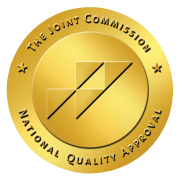What Are Dissociative Disorders?
Growing up in Western culture, there are certain aspects of life that become ingrained on our collective subconscious. Movies, music, TV, media, they all play a part. For better or worse, this unified understanding of topics and issues also plays a role with mental health. In the realms of dissociative disorders, these have largely received a collective understanding that has been forged by fiction.
That’s not to say it’s a completely false understanding. However, there is always more to the story. An easy way to illustrate this is by understanding that dissociative identity disorders were once called a multiple personality disorders. Movies and soap operas have long maintained this storyline for it’s surprising dramatic effect.
However, the caricatured display can help reveal the underlying symptom of dissociation. Quite simply, there is a dissociation (disconnection) when your thoughts, emotions, even perceptions are not a result of what is “really” happening.
For example, you are a 42-year-old woman but, from time-to-time you experience reality through the perceptions of a 7-year-old, and you behave as such, you may have a dissociative disorder (dissociative identity disorder to be precise).
What Are the Dissociative Disorders?
Dissociative disorders are a group of mental disorders characterized by disruption and discontinuity in the normal integration of memory, identity, emotion, consciousness, motor control, and behavior (DSM-5). There are four main types of dissociative disorders:
- Dissociative amnesia – Characterized by a person’s inability to recall important autobiographical information that would ordinarily be easily remembered. There are 5 types of amnesia: Localized amnesia, selective amnesia, generalized amnesia, systematized, and continuous amnesia.
- Dissociative fugue/psychogenic fugue – Characterized by the sudden loss of memory of who they are and memories, they immediately adopt a new identity.
- Depersonalization/derealization disorder – Characterized by episodes of detachment or unfamiliarity with one’s whole self or aspects of oneself.
- Dissociative identity disorder/multiple personality disorder – Characterized by at least 2 distinct personality states
What Causes Dissociative Disorders?
Chronic childhood trauma is thought to be the underlying cause of dissociative disorders. They are a way to cope with a life experience. This may include repeated, emotional, physical, and sexual abuse. Or a highly toxic, dangerous, or unreliable foundation of life. Incredibly sad and unfortunate events can lead to a person’s mind reverting to this state.
Living in an unpredictable and unsafe family environment may cause the child to dissociate from reality during the more stressful moments. It is evident that the severity of dissociative disorder is directly proportional to the severity of childhood trauma experienced.
Some other causes of dissociative disorders may include:
- Physical trauma such as head injury
- Other mental disorders such as panic disorder, post-traumatic stress disorder, and obsessive-compulsive disorder
- Some prescription drugs and recreational drugs
Signs and Symptoms of Dissociative Disorders
These depend on the type and severity of the disorder and may include:
- Feeling disconnected from yourself
- Sudden unexpected shifts in mood
- Depression and anxiety
- Derealisation—where you feel as though the world is not real
- Significant memory loss
- Identity confusion and adopting new identities
- Being unable to concentrate
Diagnosis and treatment Dissociative Disorders
Dissociative disorders are complex mental disorders to diagnose. However, medical professionals follow the criteria listed in the Diagnostic and statistical manual of mental disorders (DSM-5). The treatment options available include:
- Providing a safe and relaxed environment
- Using medication such as barbiturates
- Hypnosis to repress memories
- Psychotherapy which is a long-term form of treatment
- Stress management
- Treating co-occurring disorders
Complications of dissociative disorders
Without treatment, a person with a dissociative disorder may suffer the following complications:
- Insomnia and other sleep-related disorders
- Anxiety disorders
- Severe depression
- Eating disorders such as anorexia
- Drug use-related disorders such as alcoholism
- Self-harm and suicide
- Difficult social life and broken relationships
Help for Dissociative Disorders in Newport Beach, California
If you or a loved are experiencing the symptoms of dissociation, please call us for help today. Lido Wellness is a premier outpatient mental health facility in Newport Beach, California. We specialize in the treatment of many mental health issues, including a high competency and success in treating trauma and trauma related disorders.
If you or a loved one are dealing with issues regarding mental health, we can help




